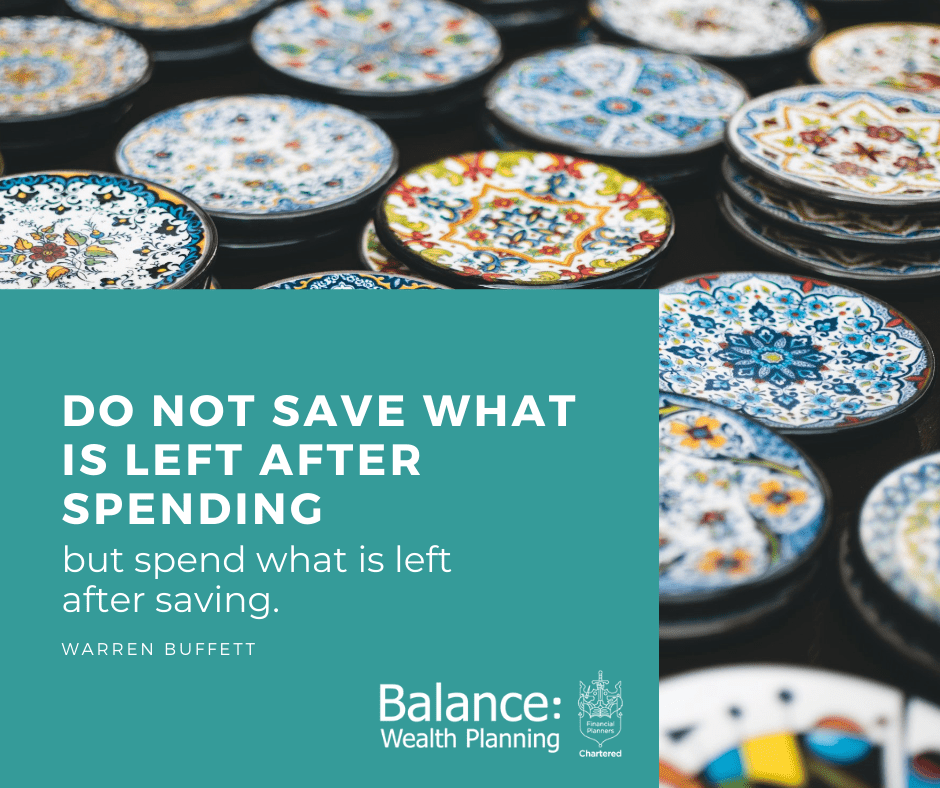
Trying to avoid underliving and overspending has become a fine balancing act for many nowadays. With the rising cost of goods, energy and taxes, even the most stable cash flow might be taking a bit of a knock. And if you’re someone who likes to plan ahead, it can be all too easy to only focus on the future and forget about living for today. So, how do you achieve a healthy balance so that you can enjoy your lifestyle and plan for the future?
The pandemic led to many of us refocusing our priorities. For some, the easing of restrictions resulted in an urgent need to have fun, frivolity; to live life in the moment. Others experienced higher levels of anxiety and felt the need to stay home and save up.
But the risk of underliving means that you won’t get to enjoy the rewards of all your hard work and money. Emotionally, this can negatively impact you and those around you, such as your family and friends. So living a fulfilled life today will make you happier and result in fewer regrets later on in life.
When asked if he had any regrets in his final hours, Economist John Maynard Keynes (1883 – 1946) said: “I wish I’d drunk more champagne.” Although we’re not advocating for anyone to drink more alcohol(!), this quote symbolises the idea of fulfilment, which will mean different things to different people.
Enjoy your life today
The Balance: Wealth Planning team advocates the importance of enjoying your life today and living it to the fullest to avoid regrets. None of us knows what life has in store, so it’s important to avoid underliving and make time to do the things that make you smile and spend precious time with your family and friends.
Often, the aim for most people is to have money and to make more of it. So, as we accumulate wealth, we also like to see it grow. However, here at Balance, we think about things a bit differently; we believe that having money shouldn’t be a goal in itself. Instead, it’s what that money can do for you that you should focus on. Of course, working hard and saving is important, but it should not be at the expense of those cherished moments spent with family and friends or those things on your bucket list that never get ticked off.
Having enough money to live but not underliving
Of course, it’s not about frittering money away; it’s about spending what you can afford and saving what’s needed. Striking a balance between underliving and overspending. And there are a few ways to utilise the money you have, so you can enjoy your current lifestyle and successfully plan ahead for the future:
- Make sure you have an emergency fund available. Typically a couple of months income at a minimum provides a safety net should something unexpected happen.
- Keep a close eye on your spending; log your monthly outgoings, avoid going into debt, and pay off credit cards each month if possible.
- Check your mortgage to see if there’s a better deal available, especially if you’re on a fixed rate and approaching the end of the term.
- Check that your current life policies, critical illness insurance or income protection will provide you and your family with a financial safety buffer, should any issues arise in the future.
- Get a pension review to see if the projected level of pension income will provide you with the standard of retirement you are seeking.
- Decide on an affordable amount you can save each month and consider different ways to invest this using tax-efficient products; aim for a diverse range of funds.
- A financial plan provides all of the clarity you need about what you have and when you’ll need it. You can understand if you have too much or too little, now or in the future, and it leaves you with a sense of control over your wealth and what you can achieve.

Having enough money to retire
We spend our working lives saving towards a retirement we hope to enjoy. However, recent research showed that over a third of those planning to retire in 2021 were worried about not having enough to last their retirement, and more than half were worried about not being able to do the things they planned1.
But, the reality is not as bad as it seems. Recent studies found that retirees are the most satisfied in life2 and that the sweet spot for a happy retirement is an income of £26,000 per year or more3.
Many people achieve a comfortable, luxurious or even an early retirement because they have been paying into a pension since they started employment. Making your money work harder for a longer time makes it easier to plan for a better financial future. But suppose you were a late starter regarding pension contributions, don’t fret. In that case, this does not necessarily mean that you won’t be able to achieve your retirement goals or that you need to make drastic sacrifices to do so by underliving; it’s all down to careful financial planning.
There are a few ways you can take control of your future retirement:
- Consider what your sweet spot is – What are your visions or goals for your third age?
- Could you save a bit more – One way to adjust the amount of income you are likely to receive is by increasing your pension contributions. For a basic taxpayer, you will benefit from 20% tax relief on your contributions, which increases by another 20% if you are a higher rate taxpayer.
- Work out what pensions you have – One in five people don’t know how much they’ve saved in their pensions4, so get your latest pension statements to hand to keep track of your retirement savings.
- Check your state pension – it can be a bit of a state pension lottery, and not everyone is a winner, so make sure you are prepared and making the most out of it before it’s too late.
- Check you’re not missing any pensions – you might have forgotten about a pension you saved into in your early career. So take a look back at your career history and use the Government’s pension tracing service to track down any gaps in your pension savings.
A pension review will enable you to forecast your future income when you retire accurately. Our financial planners can advise you on whether or not you are overspending, so you always have enough coming in to cover your bills, fund your lifestyle, and save towards your retirement. They’ll also tell you if you are underliving and should be spending more – which does happen, believe it or not! Cash flow modelling is one of the tools we use to assess your cash flow and how this will last you over your lifetime. A strong and stable cash flow is the key to successfully achieving your financial planning goals.
If you would like advice on balancing your income so you can save enough to live for today and enjoy your retirement, get in touch with our independent financial planners.
Sources:
1. https://www.abrdn.com/corporate/media-centre/media-centre-news-article/uk-retirees-at-risk-of-running-pension-pots-dry
2. https://www.ons.gov.uk/peoplepopulationandcommunity/wellbeing/articles/personalandeconomicwellbeingintheuk/whatmattersmosttoourlifesatisfaction
3. https://www.which.co.uk/news/2021/06/the-secret-to-a-happy-retirement-26000-per-year-which-research-reveals/
4. https://www.unbiased.co.uk/news/financial-adviser/one-in-six-over-55s-have-no-pension-savings-yet

